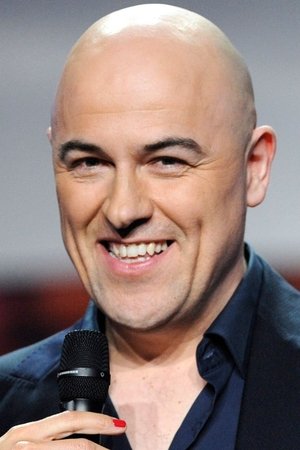Dominique A (b. 1968)
Alias:
Dominique Ané
Birthplace:
Provins, Seine-et-Marne, France
Born:
October 6, 1968
Dominique Ané (born 6 October 1968), better known as "Dominique A", is a French songwriter and singer. Born on 6 October 1968 in Provins, France, Dominique Ané is the only child of a teacher and a homemaker. He was passionate about literature and music from a young age. He was interested in the punk music of the time, but at the age of 14, at the beginning of the 1980s, he started to appreciate the dark romanticism of the new wave movement. After his baccalaureate, he studied humanities for a year, and, at the same time, did a range of odd jobs, including his spell as a utility man for an FM radio station in Nantes, where his family lived. At around the age of 16, he started up a band, John Merrick, named after the hero of the film The Elephant Man, a movie by David Lynch. The foursome recorded a vinyl album of somber, tormented songs and gave a number of concerts in the area around Nantes. Later, with the singer Katerine, he recorded a number of songs, in a different, more upbeat and livelier style. He began, at the start of the 1990s, to record more songs, which were both minimalist and rock in style. He wanted to break with the traditional chanson, which he considered to be more literary than musical. His first CD, released by the Nantes label, Lithium, met with critical acclaim, appreciated by the eminent alternative magazine, Les Inrockuptibles, and by Bernard Lenoir, the 'John Peel' of France. Furthermore, his song, Le Courage des oiseaux, (the Courage of the Birds), was an underground hit. From 1992 onwards, he started to produce more and more live shows, either with a backing band, or solo. His commercial success grew in 1995, with Le twenty-two bar, a single off the album, La Mémoire Neuve, but this success left a bitter taste in Dominique's mouth, as he considered the song to be particularly badly written. In 2000, he composed the score for Antoine Desrosières' black comedy film Banqueroute. Dominique has cited Orchestral Manoeuvres in the Dark (OMD) and Suicide as influences. In 2001, on the album Auguri produced by John Parish, he covered a song by the group Polyphonic Size, Je t'ai Toujours Aimee. Dominique's discovery of Alain Bashung's dark 2002 album, L'Imprudence shocked him to the point that it put his music into question and he decided to explore different ways of working. He decided to compile what he considered to be the first part of a musical time capsule, a longbox entitled Le Détour. He asked his fans to write about their relationship with his music, and some of their letters were published in the booklet accompanying Le Détour. For his subsequent album, he wanted to experiment and consequently, for the first time, he gave control over the album to a third party, the team who produced L'Imprudence. The result would be Tout sera comme avant (Everything will be like it was before), which was released in 2004. Unfortunately, many fans had difficulty understanding and accepting the musical change the album represents. At the same time, Dominique did a lot of live shows, with diverse arrangements: with a big band, with minimalistic backing, or all alone (where he would experiment with oversampling). ... Source: Article "Dominique A" from Wikipedia in English, licensed under CC-BY-SA 3.0.





